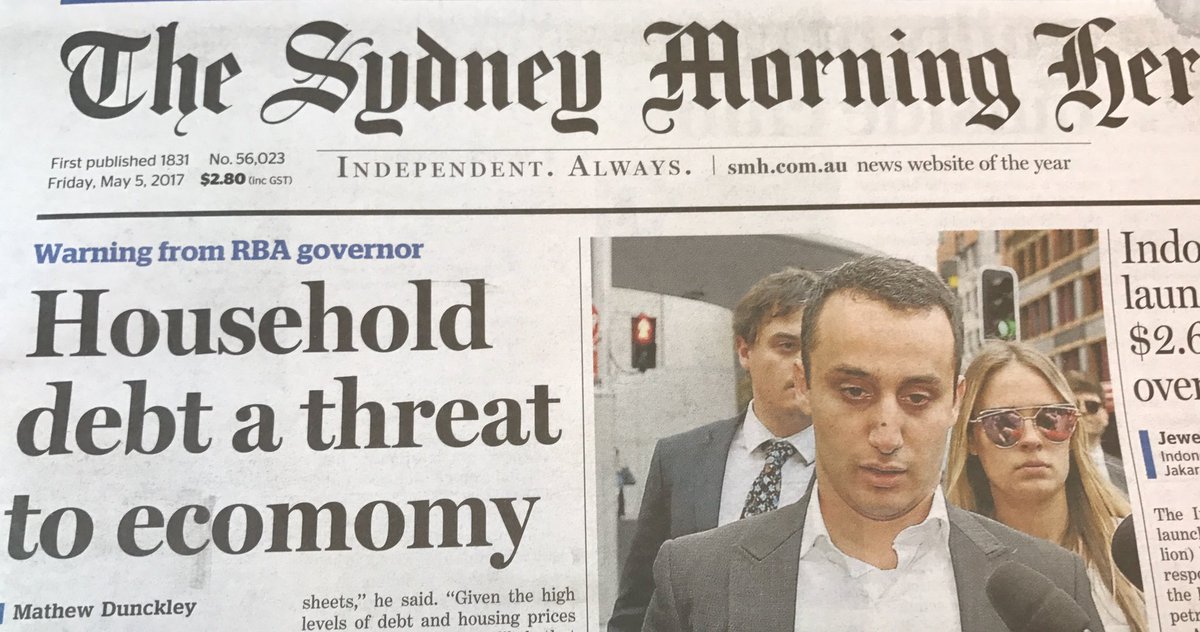A Brief Colonial History Of Ceylon(SriLanka)
Sri Lanka: One Island Two Nations
A Brief Colonial History Of Ceylon(SriLanka)
Sri Lanka: One Island Two Nations
(Full Story)
Search This Blog
Back to 500BC.
==========================
Thiranjala Weerasinghe sj.- One Island Two Nations
?????????????????????????????????????????????????Sunday, May 7, 2017
Australian journalists striking for a full week after 125 jobs axed





Staff at the Fairfax newspaper
The Age walk out in protest after the company announced a round of staff
cuts, in Melbourne, Australia May 3, 2017. Source: Reuters/AAP/Joe
Castro
HUNDREDS of journalists from one of Australia’s largest media companies
Fairfax Media are on a week-long strike after management announced
AUD$30 million cuts to editorial staff, protesting in Sydney, Melbourne
and Canberra this week.
The proposed cost cutting will see 125 staff laid off from the Sydney Morning Herald, The Age, The Brisbane Times and the Australian Financial Review mastheads, seeing the number of journalists in Fairfax’s newsrooms reduced by 25 percent.
The job cuts were announced on World Press Freedom Day on Wednesday,
leading to a mass walkout across the company’s newspapers. Canberra
Press Gallery reporters have also gone on strike, which will
impact Fairfax publications’ coverage of Australia’s 2017-18 Federal
Budget.
Sydney, Melbourne will suffer
“The newsrooms simply can’t take any more cuts,” Parliament House economics reporter for the Herald and The Age Eryk Bagshaw told Asian Correspondent on Friday. “Taking out a quarter of our staff represents a serious threat to the quality of the journalism we can produce.”
“We are striking over the budget, the most significant political event
on the calendar, to show just how desperate we are to maintain the
integrity of our newsrooms.”
The Herald is Australia’s longest running newspaper and is the country’s most read newspaper online. On Friday, it published a glaring error in its headline which read “Household debt a threat to ecomomy.”
When the good subs are on strike, errors slip through. #fairgofairfax

The arts and culture sections of Fairfax newspapers will be hit hardest “because no one covers them like we do,” said Bagshaw.
Fairfax Media was forced to cancel the “SMH Live: 100 Days of Trump”
event at Sydney’s Art Gallery of NSW on Friday night featuring a panel
of the Herald’s senior editors and correspondents, reports Mumbrella.
The Australian trade union for journalists the Media, Entertainment and
Arts Alliance (MEAA) stated “these cuts are bad for journalism, bad for
democracy and press freedom, and bad for the future of not only the
Fairfax business, but for the entire industry in Australia.”
Herald and AFR journalists have met @withMEAA and are resolute in their fight to #savetheSMH. Strike continues  ️ #FairGoFairfax
️ #FairGoFairfax
 ️ #FairGoFairfax
️ #FairGoFairfax
Fourth estate at stake
Protests are targeting the chief executive Greg Hywood, who drew controversy in 2014 for purchasing a Maserati supercar worth $140,000 amidst widespread cuts and hard-fought wage negotiations for editorial staff.
The company’s plan to slash $30 million is an equivalent figure to that awarded in recent bonuses to Fairfax executives, reported ABC News.
Striking Fairfax journos outside @Sheratonsydney. CEO Greg Hywood inside. We've asked him to come out to talk to us #fairgofairfax

The decision follows an announcement last month by Fairfax’s main
competitor, Rupert Murdoch-owned News Corp, which will see most of the
company’s photographers made redundant and a drastic reduction in sub-editing staff.
“At times like this the solidarity between journalists is greater than the rivalry between news outlets,” the media union tweeted on Thursday along with a statement from News Corp’s MEAA house committee.
“The cuts proposed by Fairfax management are disgraceful. If carried out
would damage the interests of the Australian public by dramatically
reducing the number of journalists scrutinising matters of importance in
the life of the country,” said the statement.
Journalists from number of other media organisations including Private Media-owned Crikey as well as the International Federation of Journalists (IFJ) also declared their solidarity. Striking Fairfax Media staff have said they will return to work on Wednesday, May 10.
“You need to maintain journalists that are willing to put the hard yards
in to cover these stories, or the powerful will be able to get away
with much more than they are now, and that is not helpful for any
democracy,” added Bagshaw.
“If the cuts go ahead you won’t see the same depth of coverage we have had for 185 years, simple as that.”





